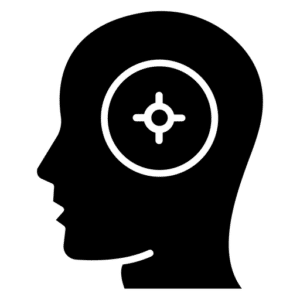Play the Mindfulness of Breathing guided meditation followed by the Dharma talk, How to Rewrite Your Destiny with Meditation. Included below is a written summary of the Dharma talk.
Dharma talk: How to rewrite your destiny
The real work involved in mediation is linguistic, and when you grasp this massively misunderstood fact then you can actually start rewriting your destiny.
By slowing down your thoughts and creating more space, meditation helps you to notice the relationship between your sensations and the thoughts, beliefs, and notions to which your sensations give rise.
With a softer, more open awareness of your thoughts and sensations, you have the power to stop negative beliefs from grabbing you. Instead, you can choose what mindset you want to maintain.
Using meditation you can develop the ability to freely interpret your experience so that you can guide events and phenomena in positive ways. You can maintain control over your mind and commit to coherent narratives that benefit your life and the lives of others. You can stop negative self-talk, and you can find words that describe and express the person you want to be.
Shaping life with language is how you create your future self and how you change the course of your destiny.
You may have heard of Cognitive Behavioral Therapy (CBT): an increasingly popular evidence-based therapy that departs from traditional psychology.
Using Cognitive Behavioral Therapy with meditation
CBT takes the approach of dealing with what we are conscious of. CBT is “present-oriented.”
Simply put, CBT says that once you recognize your belief you have the opportunity to change it, as opposed to accepting the notion that humans are driven by unconscious or subconscious drives—mostly, according to Sigmund Freud, the desire for love (Eros) or the fear of death (Thanatos).
For example, I may notice that it is raining on my birthday. And I may believe that it’s raining on my birthday because I’m a loser. And this belief will have certain negative outcomes in my life. Or— I may see the rain on my birthday as it is, a rainy day in the rainy season, and I can develop a new belief: the rain is here on my birthday and it is always here to greet me, to keep me company, the source of life, wishing me a happy birthday.
Using Cognitive Behavioral Therapy with meditation allows you to gain control over your reactions to experiences. And depending on what you think about your sensations, you will have a different story about your life e.g. the rain proves my failure vs. the rain is a gift.

Your destiny happens linguistically
This entire interpretive process happens linguistically — it happens in your thoughts, with language.
That means if you use mindful breathing to slow down your thoughts and pay attention to your linguistic reaction, to your experience—sometimes called self-talk—you will know what you are thinking. And then you can decide if what you’re thinking is what you want to think.
This is why it is important to read, and especially important to read good things. Also, this is why reading is associated with wisdom.
The form our life takes depends on the language we use. So what you read influences your thoughts, your possibilities, and your linguistic understanding of yourself and your environment.
When we expose ourselves to linguistic diversity we change our destiny
You can think anything you want. But the possibility of what you can think is limited by that to which you’ve been linguistically exposed.
For example, if you’ve never heard of Buddhism, then you can’t understand the basic teaching of Buddhism: that you are Buddha and that Buddha is you. You can’t see a plant and understand that you and the plant are both Buddha and therefore that you and the plant fundamentally are one substance.
If you have only been exposed to the teaching that you are a sinner forever and you have never heard another teaching, then no matter what you do you will think that you’re going to Hell as a sinner.
Religions present ways of fundamentally understanding our experience and our sensations. And you are free to choose how you want to interpret anything. You can be—or even switch back and forth between being— Buddhist, Calvinist, Jewish, Catholic, Jain, Hindu, Muslim, Shaman, or whatever you want.
None of these spiritual views are fixed, and you can think what you want at any moment. So, there is no reason to choose a way of thinking that doesn’t make you happy.
But how do I define happiness? What view of happiness is the best view of happiness?
Personally, I like Buddhism because it’s coherent, thorough, complete, and aims to make the human experience happy for everyone and everything.
Buddhism has at its core the important teaching of One Mind. Therefore, in choosing thoughts, what might happen if you were to choose and meditate on thoughts that are the same as those of a Buddha.






